Swiss damage control can’t save all school partnerships
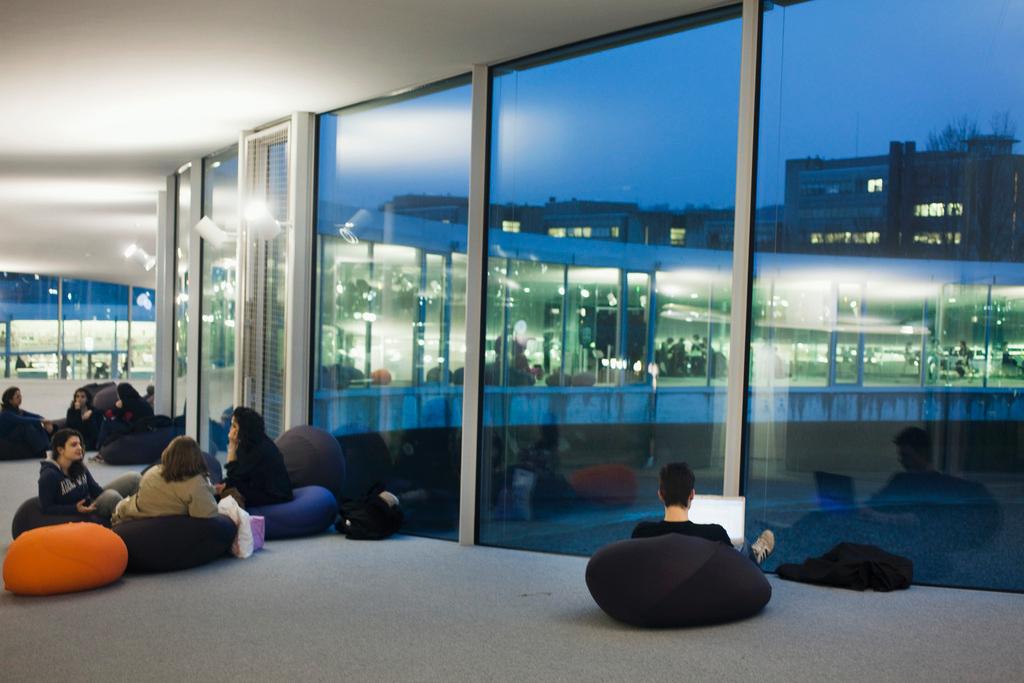
Felix Briza’s one shot to study abroad hung in the balance after Switzerland voted to re-introduce quotas on immigrants from the European Union and was kicked out of full membership in the Erasmus+ exchange programme as a result.
“The Erasmus application deadline had already passed, so I would not have had another chance to go anywhere else,” says the German student who had applied for an exchange slot at the Swiss Federal Institute of Technology Lausanne (EPFL). “I had to hope.”
For Briza, the benefits of studying in Switzerland were the opportunity to learn a language, experience a new culture and the “different levels of knowledge“ a new university could bring to his mechanical engineering studies. Plus, he wanted to experience Switzerland’s “endless possibilities for skiing and biking”.
His dreams came true when the Swiss government swooped in to save student exchanges through a new network called the Swiss-European Mobility Programme, or SEMP. SEMP assumes costs for outgoing as well as incoming students, with those small cost-of-living grants issued directly by the Swiss government instead of via Erasmus+ as before. Thanks to SEMP, everything worked out for Briza – for the better, he thinks.
“Nobody is complaining that [Switzerland’s system] is no longer Erasmus,” he observes – especially since he says he and his fellow students are getting more money per month from the SEMP stipends than they would have directly through Erasmus.
“Erasmus has the reputation for students doing nothing and partying all week, and if you say you are a Swiss scholarship holder, it sounds way better,” adds Briza.

More
felix.jpg
For the most part, SEMP seems to be paying off. Although initial numbers showed declines from 10-38% in the number of exchange students at Swiss universities, Gaëtan Lagger, who works on international education projects for the Swiss government, expects exchange student numbers to bounce back quickly because of communication efforts with European schools.
And in the case of the University of Glasgow which had to suspend planned student exchanges to Switzerland in the fall semester of 2014, exchanges with Switzerland will continue next semester. According to Elizabeth Buie of the university’s international media office, this is due to the Swiss government’s workaround plan.
“This number [of exchange students] is in line with previous exchange figures when Switzerland participated in the Erasmus programme,” she told swissinfo.ch.
Angelika Wittek, head of the student exchange office at the federal technology institute ETH Zurich, says that the university has not seen any dramatic decline in the number of incoming and outgoing exchange students so far and has been able to maintain the large majority of its exchange partnerships.
“It might even be that we’re lucky under the circumstances because we can revert to the way the programme was handled before 2011, when Switzerland was a ‘silent partner’ within Erasmus,” Wittek says. “Erasmus is becoming much more complicated now – students have to do things like language diagnostics [before going on exchange].”
The entire Erasmus programme was overhauled as of January 1 under the name “Erasmus+” to bring multiple exchange and partnership programmes under one roof. Switzerland only participated as a full partner in the Erasmus+ predecessor, the Lifelong Learning Programme, between 2011 and 2013.
Swiss-led partnerships take a hit
But people like Michael Hayes and Claudia Dietschi have seen the benefits of Switzerland’s full participation in European exchange programmes first-hand. Hayes is an exchange student in Switzerland from Canada – and therefore not an Erasmus+ participant – but he’s noticed it gives his peers from other European universities an opportunity they wouldn’t otherwise have had.
“The main reason I could come on exchange is because my parents are generous, and that’s too bad. Everyone should have the chance,” he says.
When Dietschi wanted to go study in Vienna more than a decade ago – before Switzerland had bilateral agreements with the EU or was part of Erasmus – she had to find her own way, convincing the university to take her on as an exchange student without an Erasmus stipend and paying the full tuition herself.
“I thought it was much harder for us [Swiss] abroad before the bilateral agreements,“ she says.
And student exchanges are just part of what Switzerland stands to lose without Erasmus+. Since Swiss institutions can no longer lead cooperation and reform projects within the Erasmus+ programme, it’s those that have fallen by the wayside.
“[When the vote on EU quotas happened], many Swiss education and training institutions were already preparing to coordinate a project,” Lagger points out. “Within weeks, they had to either pass their coordination task to a European partner and be invited as a silent partner on their own project, or refrain from applying.”
Examples of such partnerships might include the development of new curricula, sharing best practices and increasing cooperation between European universities and the businesses that could eventually hire their graduates, according to Florence Balthasar of SwissCore, the Contact Office for European Research Innovation and Education based in Brussels. In her role there, Balthasar works on developing and fostering Swiss partnerships with European schools and universities.
“When we were fully associated in the Lifelong Learning Programme, we could coordinate and run cooperation projects, ” she says. “Now, if we want to participate, we come silently with our own money, getting no official recognition. Or if we dare to participate fully, we can’t coordinate projects.”
Convincing people that Switzerland is losing out by being excluded from such projects is not an easy task, since the country was only a full partner between 2011 and 2013. Because of that short timeframe, many institutions were just starting to exploit all possibilities on offer.
“We were new in the European education programme, we were still on a learning curve,” Balthasar says. “It’s not like the European research programme [currently Horizon 2020] where we had been associated since 2004.”
Balthasar cites one sub-programme of Erasmus+ that had gotten off the ground which Switzerland can no longer participate in at all: eTwinning, a virtual platform allowing primary and secondary school students to exchange projects and ideas with classrooms in other European countries.
In addition to such projects, it’s also no longer possible for students from the European Union to get work placements in Swiss companies as they previously could.
“We normally sent one or two students to Switzerland for Erasmus Work Placements in companies or research institutes, and it has not been possible to continue this activity with Erasmus+ support in 2014-15,” says the University of Glasgow’s Elisabeth Buie.
As a result, Lagger says the fallout from Switzerland’s changed status in Erasmus+ can mainly be felt at Universities of Applied Sciences, technical schools and businesses, since universities and technology institutes tend to have more established networks and projects.
Damage control
Peter Eigenmann heads up the international relations office at the Bern University of Applied Sciences. He says his staff had to go to great lengths to try to preserve as many partnerships with European universities as they could – even visiting many in person – but not all efforts have been successful. And participation in an exchange and partnership programme to network the school’s professors and staff with those in other European countries “dropped sharply” although it had become increasingly successful in recent years.
Indeed, in the immediate aftermath of the February 9 vote, people like Wittek, Lagger, Balthasar and Eigenmann were working around-the-clock on damage control, trying to communicate to universities in Europe that student exchange with Switzerland was not dead in the water.
Most understood and wanted to preserve those partnerships, says Balthasar, but there were some casualties: certain universities in Spain, for example, decided they would stop sending their students to Switzerland altogether.
The question now is how Switzerland’s participation in European exchange programmes will be funded and preserved in the years to come, beyond the scope of the stopgap government measures.
“We are exploring all options that we have, and we still have a mandate to negotiate full association [in EU programmes],” Lagger says. “That is still our goal.”
“But the EU commission has stated very clearly that we will be fully associated only if the matter of free movement of people is settled.”
Switzerland’s changed status in Erasmus+
Following the nationwide vote on February 9 to re-introduce quotas on immigrants from the European Union, Switzerland’s status in the Erasmus+ programme became that of a “partner country” instead of a “member country”. What does that mean? Here’s an explanation from Dennis Abbott, spokesman at the European Commission:
“Under Erasmus+, being treated as a partner country means that Switzerland reverts to the status it had before joining the EU Lifelong Learning Programme (of which Erasmus was a part) in 2011. In 2014, this means that participation of Swiss organisations is essentially limited to cooperation activities, where the involvement of Swiss organisations demonstrates a clear added value for the EU.”
See the links below for more on “partner countries” versus “member countries.”

In compliance with the JTI standards
More: SWI swissinfo.ch certified by the Journalism Trust Initiative

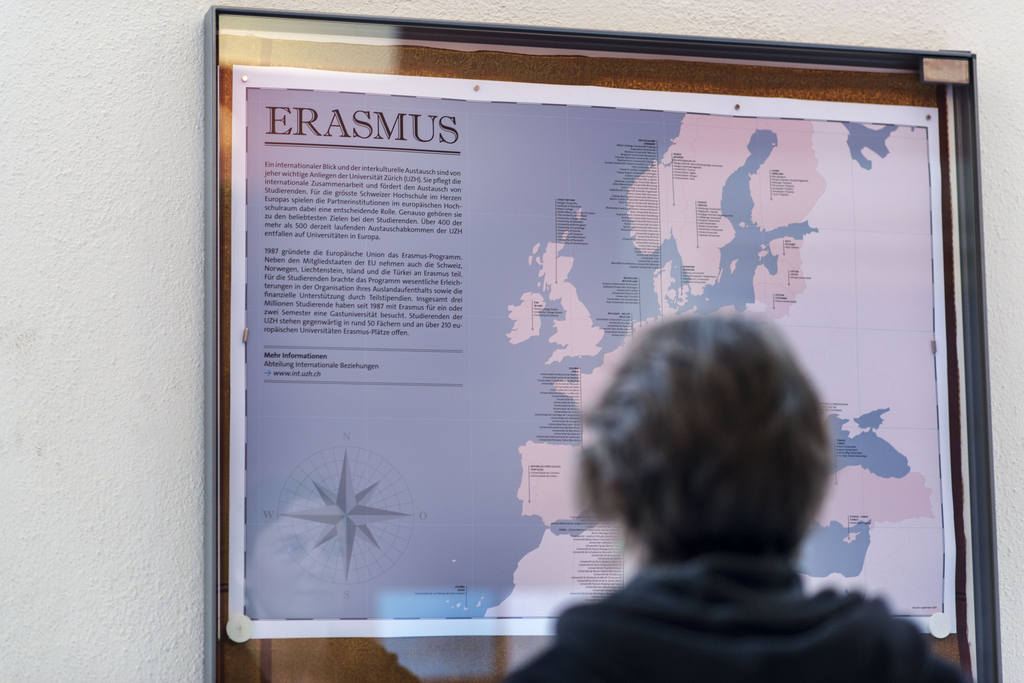
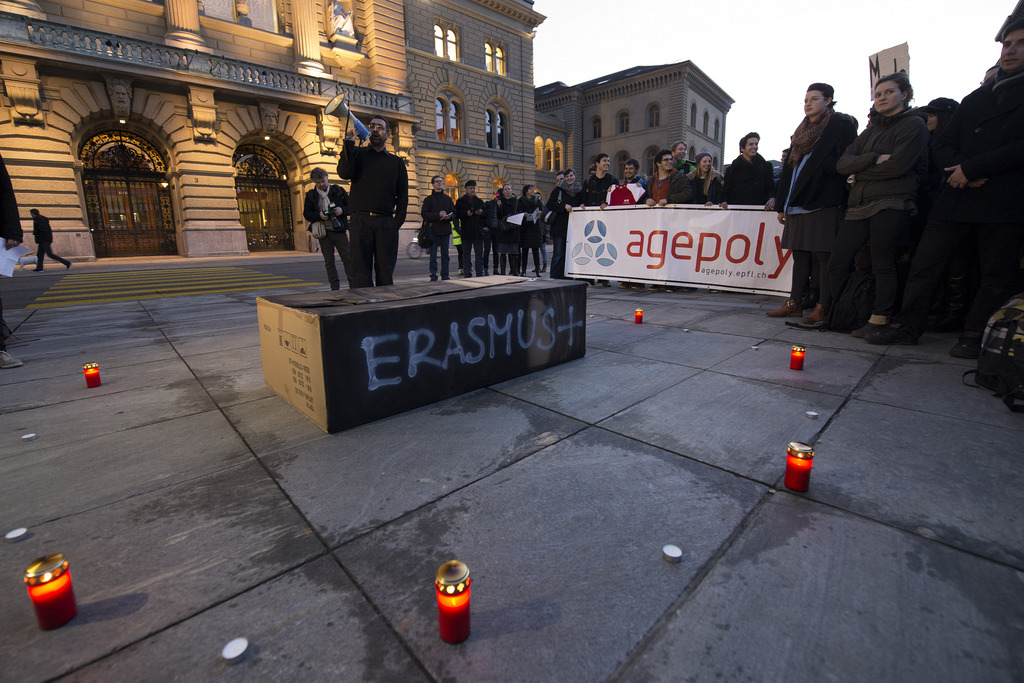
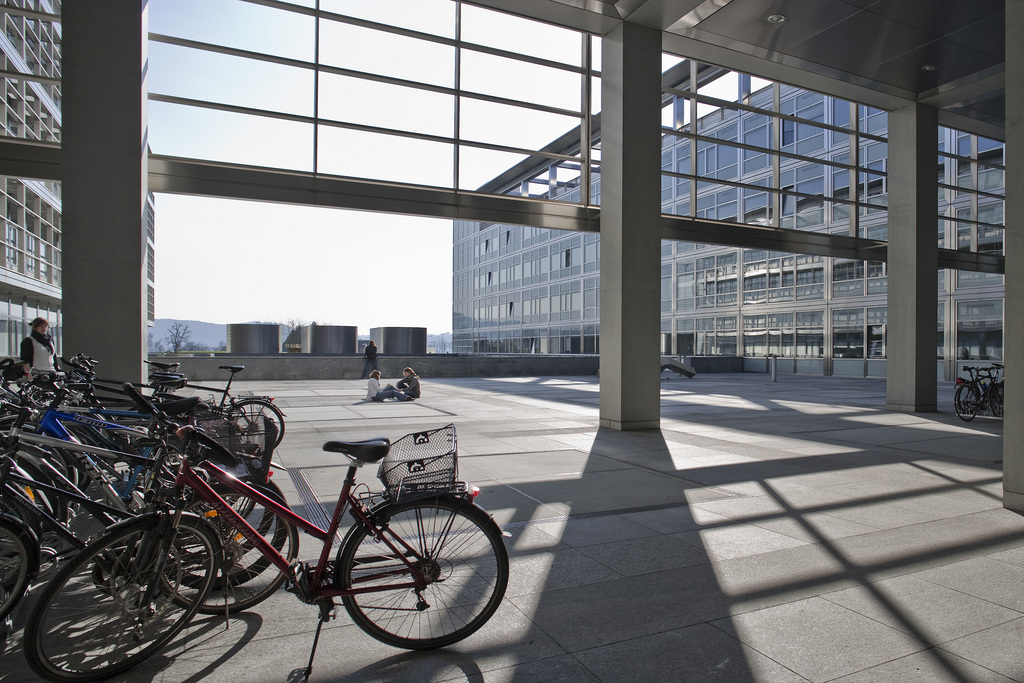
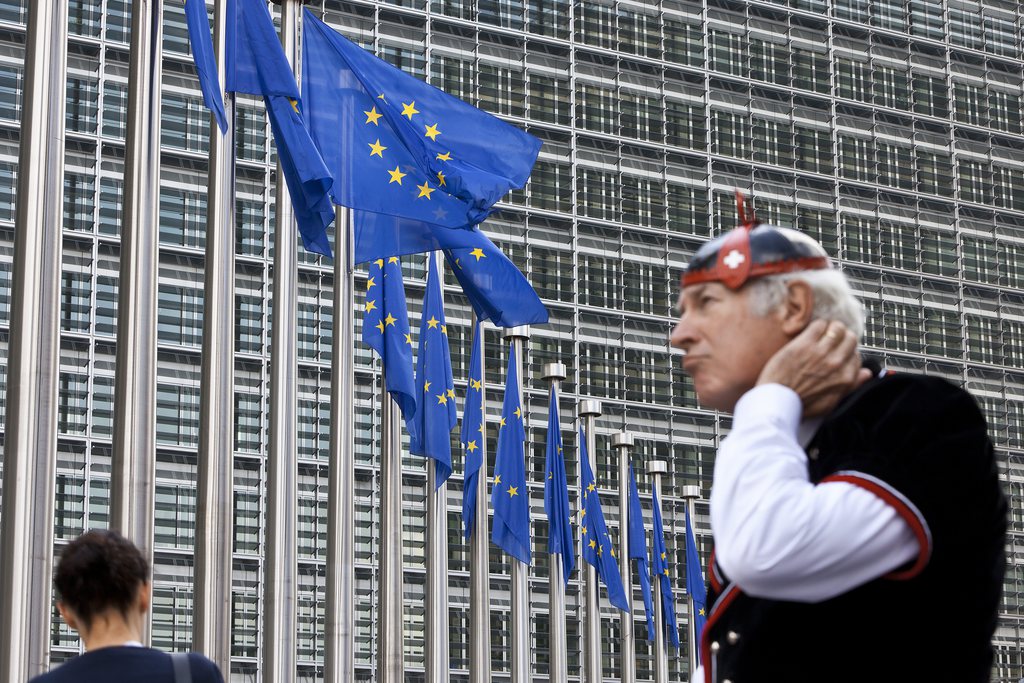

You can find an overview of ongoing debates with our journalists here. Please join us!
If you want to start a conversation about a topic raised in this article or want to report factual errors, email us at english@swissinfo.ch.